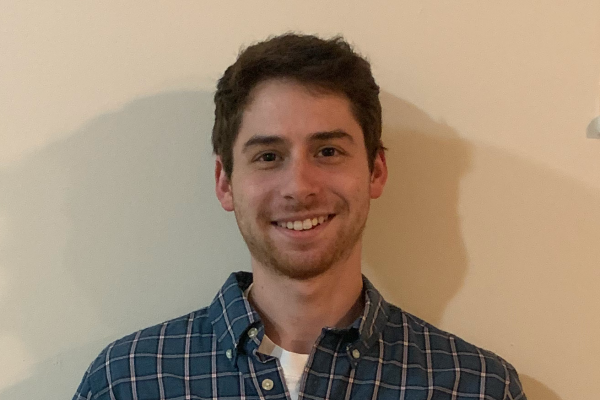Graduate Student Highlight: Alex Gekow

Graduate Student Highlight Questions
Short answer questions:
What year are you in? 2nd Year
What group are you in? High Energy Particle Experiment (ATLAS), advisor: Antonio Boveia
Where are you from?
Sharon MA, just outside of Boston
Long answer questions:
Describe your research in 200 words or fewer.
I am working on devising Neural Network algorithms in the context of trigger level particle tracking at the High Luminosity Large Hadron Collider (HL-LHC). When data taking commences at the HL-LHC, the number of particles produced per collision event will increase by a factor of 2.5, most of which will be background, obfuscating underlying novel interactions. Track reconstruction in a real-time trigger system is critical to fully exploit the physics capabilities of hadron-collider experiments, enabling an early rejection of background and more signal-like events written to tape. Neural Networks implemented on heterogeneous computing architectures may be one technique we can utilize to accomplish this goal in hopes of discovering Beyond Standard Model physics at the HL-LHC.
What have you done in physics that you are most proud of?
Passing the GRE? Really my career has only just begun, but entering graduate school and fulfilling my dream of contributing to fundamental physics is a good start.
What have you done outside of physics that you are most proud of?
I dropped out of my undergraduate school for a bit and backpacked across New Zealand, Thailand, Vietnam, and Israel. Making that decision for myself, to leave school and explore what else the world has to offer, is something I am proud of. In the end my passion for physics outweighed my wanderlust, as I’m here at OSU and not still sleeping on the side of a New Zealand road.
What are your future goals?
Once (if?) this pandemic passes, I’m very excited to visit and begin working at CERN. I’d also love to one day enter the Professional Disc Golf Association, but for now physics takes priority.
